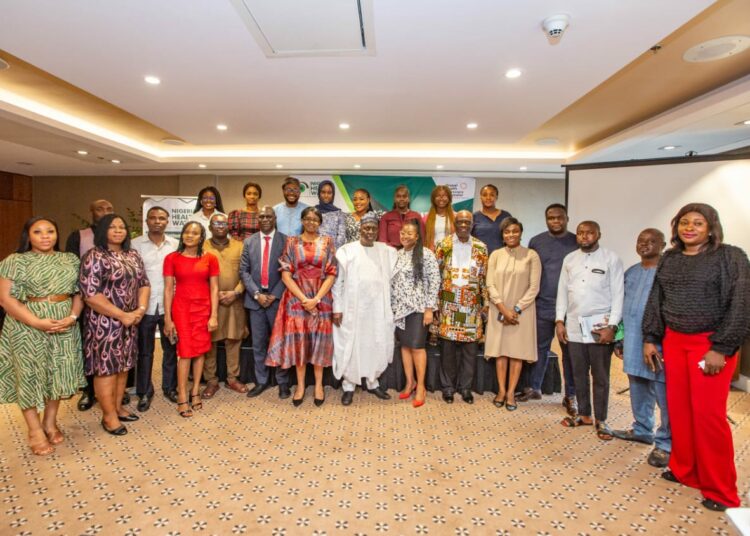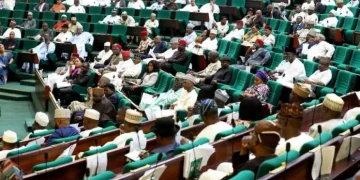Less than five days for President Muhammadu Buhari to leave the office, stakeholders are hopeful that the Health Emergency Bill would be assented to.
The bill, if signed into law, would establish a legal and administrative framework for handling outbreaks of infectious and contagious diseases.
The chairman, Senate Committee on Health, Ibrahim Oloriegbe, said these diseases portend a significant threat to public health safety within the country.
Oloriegbe, who spoke at a media roundtable, themed: “Strengthening Health Security in Nigeria Through Public Health Legislation,” organised by the Nigeria Health Watch in partnership with the Global Health Advocacy Incubator, in Abuja, said infectious and contagious diseases can also be transmitted into the country or outside the country borders.
He said the Public Health Emergency Bill, if assented to, would revoke the 96-year-old Quarantine Act and establish a framework for managing public health emergencies of national and international concern.
According to him, the bill, which was passed by the Senate in January 2022, would be harmonised with the Control of Infectious Diseases Bill presented by the House of Representatives.
The bill titled, “A Bill for an Act to Provide for an Effective National Framework for the Control of Outbreaks of Infectious Diseases and Other Events Endangering Public Health and Requiring Public Health Emergency Measures and For Other Related Matters (SB. 413)” was first introduced to the Senate in 2020.
Speaking further, Oloriegbe noted that the last four years cannot be discussed without mentioning COVID-19 and the impact globally and nationally.
He said COVID is not just a health problem but also an economic problem because as it affects our health, it also affect our wealth.
However, he said the legislation played an active role alongside the executive and through partnership, in managing the situation.
According to him, “As a committee, we took a proactive measure, we went there to inspect the ports, Abuja airport, Lagos airport and Apapa sea port or so, we had support and partnership from the global health advocacy and that actually paid off because it enabled us to access the ports to receive anything that may come and some interventions were made which were quite critical.
“One of the things that was pushed by the partnership was for us to get more resources for health security and they were tracking it.
“I think in the last four years, we have ben able to increase the visibility for the funding particularly in 2020 when we had the 2020 budget and the supplementary budget. We were able to expand our infrastructural base to be able to address public health issues.”
“In Abuja airport then, I recall there was no sounded ambulance. Outside what they had as port heath office, there was none until after then before they allocated the portal cabin,” he said.
Oloriegbe recalled that as at the time COVID started, the country had only two laboratories owned by the government, adding that now, there are 61 government owned laboratories, courtesy of the resources put into the budget by the legislation.
“As at the time COVID started, we had in the country, two labs that are government owned, of course there were about two that were private.
“We had the one by the Nigeria Centre for Disease Control (NCDC) which is the National Reference Lab and in Lagos,” he said.
According to him, the plan was to build laboratories for states but considering the fact that there are no human resources to manage high level laboratories like that, the budget was redesigned.
“We redesigned the budget, allocated that resources to each of the federal own tertiary institutions because that is where you have the pathologist, laboratory scientists at higher level, not in the state because states don’t recruit such higher level number of people,” he explained.
Corroborating this, the chairman house committee on health services, Tanko Sununu
said putting the laboratories in the states as earlier planned would amount to a waste of resources.
“If we put the molecular laboratories there, who runs it, who provides the funding, support or what have you. that is why what we did was to have an alignment. We decided that the money for senatorial molecular laboratory should be channeled into the tertiary health centres since we already have manpower there, we have the administration that will run it’ we have a budget line coming from various teaching hospitals that can easily be used to maintain it, and the ministry agreed with us.
However, he said though the country has made some achievements in public health promotion, it is far from achieving the 15 percent Abuja declaration.
Sununu said this is despite being that since they came into power in 2019, the supplementary budget has been funded 100 percent.
“I think this is a very good achievement, people may not see it. Yes you can give 15 percent as far as figure is concern to the budget but decide to release only two to three percent. there was a time when our budget was just like five percent but when you look at budgetary release, you will find out that it is less than 30 percent. So you have it in words but in action you don’t have it,” he explained.
He stressed the need to have functional Primary Healthcare system, saying that the country cannot have a very good public healthcare services when the primary healthcare service delivery is not trusted.
In her remarks, the managing director, Nigeria Health Watch, Vivianne Ihekweazu, stressed the need for collaborative efforts towards ensuring that the country’s full preparedness for future health emergencies.
“In order to prepare for not just COVID-19 going forwards, but public health emergencies in general, we need the supporting legislation, as we see globally, discussions of the pandemic accord,” she said.
Ihekweazu said the sector needs the necessary financing to ensure that when the country is faced with public health emergencies, there will be supporting funding as well.
She, however, identified the legislation as a very critical component, saying the bills set for harmonisation have significant implications for public health in the country











